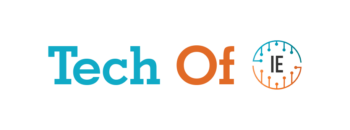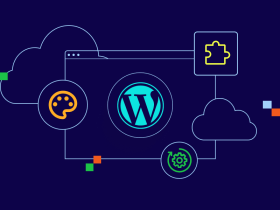Singapore’s skills-first approach to workforce development is transforming the way professionals prepare for tomorrow’s economy. Whether you’re just starting or looking to reinvent your career, targeted learning has become the currency of professional relevance. Digital marketing training, WSQ courses in Singapore, and AI courses are among the most future-focused areas for upskilling, each offering a pathway to the capabilities needed in a modern economy.
1. Why Digital Marketing Training Remains a Staple
Marketing now serves as the frontline of customer engagement, a strategic role that extends far beyond its former status as a siloed function. Digital marketing training teaches more than how to run ads or grow a social media following. It gives learners the tools to understand analytics, automate campaigns, and craft messaging that speaks to specific segments. Professionals who undergo structured digital marketing training gain clarity on tools like Google Analytics, Meta Ads, and SEO platforms, but more importantly, they learn how to apply these tools within broader business objectives.
For SMEs and startups in particular, having an in-house team member with such training can be the difference between reaching the right audience and wasting resources. As digital strategies influence nearly every industry, the demand for digitally literate marketers continues to grow. This growth is especially pronounced within Singapore’s startup and e-commerce ecosystem.
2. The Role of WSQ Courses in Singapore’s Upskilling Landscape
WSQ courses in Singapore are designed to align training with national economic needs. Whether you’re in logistics, hospitality, retail, or tech, WSQ-accredited programmes help individuals develop sector-relevant competencies that are formally recognised by employers. The system is modular and flexible, allowing working adults to stack credentials or pivot entirely without starting from zero.
One of the key strengths of WSQ courses in Singapore lies in their accessibility. Subsidised course fees and SkillsFuture Credit support make it feasible for workers across all income levels to pursue further education. In industries where credentials matter, a verifiable signal of competence is crucial. WSQ certification provides this, making it especially valuable for mid-career workers looking to remain competitive.
3. Why AI Courses Are No Longer Optional
Artificial Intelligence is now a current reality, rather than a technology that is simply on the horizon. From chatbots and recommendation engines to predictive analytics and process automation, artificial intelligence is integrated into how businesses operate. AI courses now cater to non-technical professionals as much as to engineers or data scientists. They explain concepts like machine learning, prompt engineering, and algorithmic bias in digestible terms and often include hands-on practice with no-code AI tools.
By taking AI courses, professionals gain the confidence to work alongside these technologies rather than being sidelined by them. Whether you’re in finance, education, marketing, or logistics, understanding AI’s capabilities and limits enables better decision-making and collaboration with tech teams. AI literacy is increasingly seen as part of core digital fluency, not a niche skill.
4. The Intersection of Digital Marketing and AI in Real Practice
The boundaries between digital marketing training and AI courses in Singapore are beginning to blur. Today’s marketers need to understand AI-driven tools like automated bidding systems, dynamic content generation, and behavioural segmentation. Professionals trained in both disciplines learn to analyse campaign data, forecast trends, and create adaptive strategies. These are highly prized skills across a wide range of industries.
More training institutes are beginning to offer hybrid courses that bridge this gap, helping learners apply AI concepts directly to marketing scenarios. This cross-functional approach mirrors how teams work in the real world, where marketing and data science must collaborate to deliver results.
5. Choosing the Right Provider: What to Consider
It is critical to look beyond just the curriculum when selecting a professional course. This is true whether you are considering digital marketing training, WSQ courses in Singapore, or AI programmes. Consider the quality of instruction, industry relevance, post-course support, and certification recognition. For instance, some providers offer real-world case studies or industry mentorship, which can be just as valuable as the course content itself.
Look for institutions that understand local industry needs and maintain relationships with employers or government bodies. Training is most effective when it’s embedded in the ecosystem you aim to work in.
6. Learning as a Long-Term Investment
Upskilling is no longer an occasional pursuit; it’s a career-long strategy. Professionals in Singapore are increasingly turning to structured learning to future-proof themselves amid automation and global competition. Digital marketing training helps individuals stand out in a saturated content landscape. WSQ courses in Singapore create pathways into new sectors and offer credibility. AI courses in Singaporebuild awareness and hands-on skills in a field shaping every industry.
Together, these learning paths enable individuals to remain adaptable, curious, and competitive. As technology reshapes every profession, those who invest in learning now will be best equipped to thrive later.
Conclusion
The future of work in Singapore is defined by agility and applied knowledge. Whether you’re exploring digital marketing training, planning to enrol in WSQ courses in Singapore, or ready to dive into AI courses, the learning landscape has never been more accessible. With a wide range of offerings and government support, there’s no better time to equip yourself with skills that align with the evolving demands of your industry.
To explore strategic learning options in digital marketing, AI, and more, contact OOm Institute.










